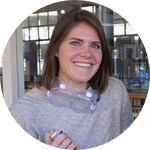iGEM Synthetic Biology
Categories

iGEM is an annual competition in synthetic biology, with teams competing from around the world to build biological systems from a standardized kit of biological parts.
The Projects
Browse the participating projects
Creating the ideal E. coli strain for producing functionalised outer membrane vesicles
Outer membrane vesicles (OMVs) are protein transport 'bubbles', produced by bacteria for communication...
Creating a Genetic Circuit Control Toolbox
Synthetic biology studies the design of genetic circuits to program cells to solve problems in areas like...
The DNA Typewriter: Building a modular system to encode text in DNA
By 2040, we will exhaust the materials needed to store digital data; creating a desperate need to find novel...
Developing a modular paper-based detection device for Tuberculosis
The Michigan Synthetic Biology Team is developing a novel diagnostic device that will enable the detection...
Rapid Detection of Tuberculosis -SCSU-New Haven iGEM
The World Health Organization reports 9.6 million new Tuberculosis cases in 2014. As a global health issue...
How can we keep genes from interfering with each other in synthetic DNA circuits?
Building complex biological systems with many genes requires isolating genes. Active genes can cause nearby...
StarScaffold - Creating Better Multi Protein Structures
StarScaffold is a scaffold protein designed to specifically link other proteins to itself. It’s a platform...
Improving the detection of expired medication in developing countries to improve maternal health
Oxytocin prevents maternal mortality by reducing bleeding after giving birth. It's limited in rural areas...
More About This Challenge
The sciency details
Challenge Aims
Synthetic biology is an emerging field with widely varied applications, from alternative energy to cancer research. Biological systems can be engineered in living organisms such as yeast or E. coli, to produce new outputs or uses. Most of the iGEM teams are comprised of undergraduates, high school students, or community lab members. The competition encourages undergraduate and early-career research experience, and projects are led and implemented by the students.
Project Eligilibity
A project must be run by a registered, approved iGEM team based in the US, UK, Australia, or Canada, and submitted for review by 7/13.








 Challenge Grants
Challenge Grants